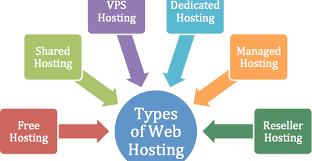In the digital age, having a strong online presence is crucial for individuals and businesses alike. Whether you’re a blogger, entrepreneur, or small business owner, launching a website is a significant step towards establishing your online identity. However, before you dive into the exciting world of website creation, it’s essential to understand the fundamentals of web hosting. In this comprehensive guide, we’ll explore Hosting 101 – everything you need to know before launching your website.
What is Web Hosting?

At its core, web hosting is the service that allows individuals and organizations to make their websites accessible to the world wide web. A web hosting provider stores your website files on a server, making them accessible to users when they enter your domain name in a web browser.
Types of Web Hosting:

There are various types of web hosting, each catering to different needs and preferences. The most common types include:
a. Shared Hosting
b. Virtual Private Server (VPS) Hosting
c. Dedicated Hosting
d. Cloud Hosting
Understanding the differences between these hosting options will help you choose the one that aligns with your website’s requirements and budget.
Factors to Consider When Choosing a Hosting Provider:

Selecting the right hosting provider is crucial for the success of your website. Consider the following factors when making your decision:
a. Uptime reliability
b. Speed and performance
c. Customer support
d. Scalability
e. Security features
Domain Names and Hosting:

Your domain name is your website’s unique address on the internet. While you can purchase your domain separately from your hosting, many providers offer both services. Learn about domain registration, renewal fees, and the importance of a memorable and relevant domain name.
Bandwidth and Storage:

Understanding your website’s bandwidth and storage requirements is vital. Bandwidth refers to the amount of data transferred between your site and users, while storage is the space required to store your website files, images, and databases. Ensure your hosting plan accommodates your website’s growth.
Website Security:

Security is paramount for any website. Look for hosting providers that offer robust security features, including SSL certificates, firewalls, and regular backups. Protecting your website and your users’ data should be a top priority.
Website Backups:

Regular backups are your safety net in case of data loss or website issues. Learn how your hosting provider handles backups and consider implementing additional backup solutions for added security.
Conclusion:
Launching a website is an exciting venture, but understanding the fundamentals of web hosting is crucial for a successful online presence. By exploring Hosting 101, you’ll be well-equipped to make informed decisions about your hosting provider, domain name, and the overall infrastructure of your website. Take the time to research and choose wisely, as a reliable hosting foundation is key to a seamless and successful online journey.


